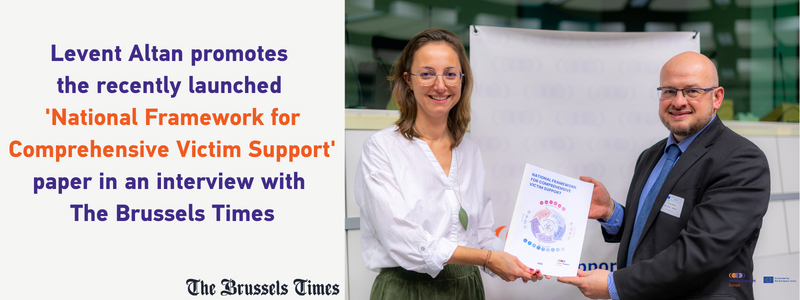EU – Nine out of ten hate crimes going unreported
A ‘hate crime’ is “a criminal offence committed with a bias motive”.
Hate crimes motivated by racism, xenophobia, religious intolerance or a person’s disability, sexual orientation, gender identity, gender expression and sex characteristics are severe expressions of discrimination. Hate crimes are a grave abuse of a person’s dignity, inherent to all human beings, and violate the founding values of the European Union (EU).
Victims of a hate crime are victimised for who they are or are perceived to be. But hate crimes do not only harm individual victims. The offender’s message of intimidation and social exclusion reaches everyone sharing the same characteristics, and the wider society, weakening social cohesion. In this way, hate crime causes incalculable damage to victims, families and society as a whole.
The proportions of Roma and Travellers, Jews, Muslims, people of African descent, immigrants and descendants of immigrants, and LGBTI people across the EU who experience violations of their fundamental rights to non-discrimination and personal safety and integrity are continuously high:
The Council of Europe has over the years produced a wealth of legal instruments and texts relating to victims. EU and international human rights laws mandate EU Member States to combat hate crime effectively. But States cannot effectively deliver on these duties unless victims and witnesses come forward and report hate crime incidents to the competent authorities.
Take a look at this article:
https://www.euronews.com/2021/07/07/nine-out-of-ten-hate-crimes-going-unreported-eu-report-claims
EU Agency for Fundamental Rights (FRA) – Encouraging hate crime reporting – The role of law enforcement and other authorities. This report examines why victims do not report bias-motivated incidents and the barriers that they face when reporting incidents through national crime reporting systems. By mapping existing practices that have a bearing on the victim’s experiences when reporting bias-motivated violence and harassment, it aims to provide evidence to support national efforts to encourage and facilitate reporting – and ultimately assist Member States in delivering on their duties with regard to combating hate crime. (Can be sent to you if you are interested)
Hate Crime – Victim Support in Europe – A Practical Guide. The German civil society organisation RAA Sachsen and their project ‘Guidelines and Support Standards for Victims of Hate Crimes’, gathered together specialist victim support providers from across Europe to share knowledge about good practice. The goal was to combine and share practitioner understanding about supporting and counselling victims of hate crime. The short book presents the knowledge gathered and provides useful practical case study illustrations of supporting hate crime victims. (Can be sent to you if you are interested)
Here are some of the organisations providing support to victims of hate crimes:
VBRG, the Association of Counseling Centers for Victims of Right-wing, Racist and Anti-Semitic Violence in Germany: https://verband-brg.de/english/
APAV – Portuguese Association for Victim Support: www.apav.pt
Fundación Secretariado Gitano, Department of Equality and Non-Discrimination: www.gitanos.org
Civic Assistance Committee Moscow: http://refugee.ru ; http://hatecrimes.ru
KPH – Campaign Against Homophobia: http://kph.org.pl
M.C.I. – Movimiento contra la Intolerancia: www.movimientocontralaintolerancia.com
NEKI – Legal Defence Bureau for National and Ethnic Minorities: http://neki.hu
NICEM – Northern Ireland Council for Ethnic Minorities: http://nicem.org.uk
ZARA – Zivilcourage und Anti-Rassismus-Arbeit: www.zara.or.at
RFSL – The Swedish Federation for LGBTQ Rights: www.rfsl.se
Stop Hate UK: www.stophateuk.org
Recommended1 recommendationPublished in Uncategorised



Very interesting post Sigal! Two week ago, on World Day Against Trafficking in Persons, UNODC launched the ‘Victims’ Voices Lead the Way’ campaign. It includes short videos in which human trafficking survivors talk about their motivation to engage in anti-trafficking efforts and showcases their successful activities. With this campaign, UNODC highlights the importance of listening to and learning from survivors of human trafficking.
You can find more about the campaign at: https://www.unodc.org/unodc/en/endht/index.html